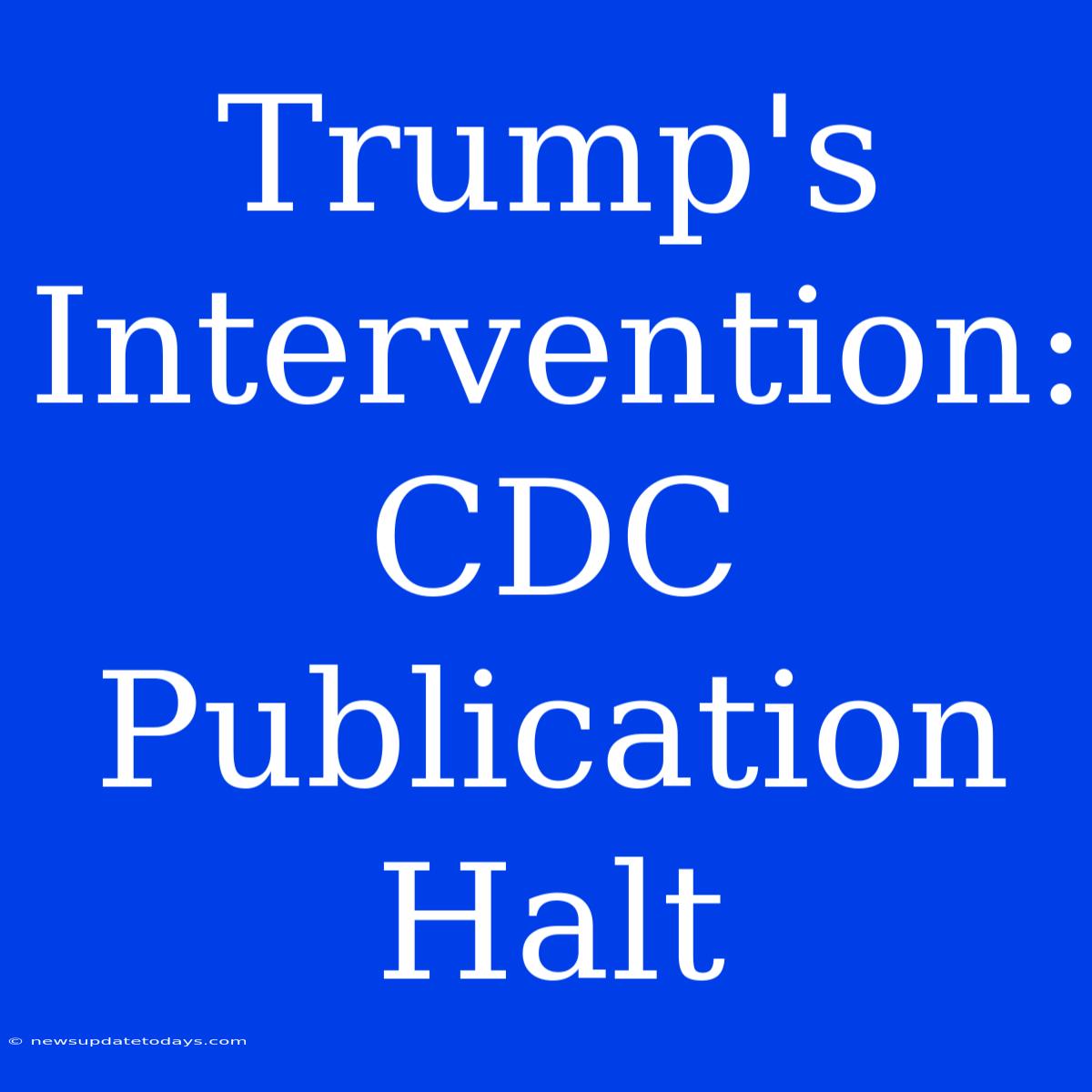Trump's Intervention: The CDC Publication Halt – A Deep Dive into the Controversy
The Trump administration's controversial intervention into the Centers for Disease Control and Prevention (CDC) publication process remains a significant point of contention, raising serious questions about scientific integrity and public health. This article delves into the details of this intervention, its implications, and the ongoing debate surrounding it.
The Halt: What Happened?
Reports surfaced in 2020 alleging that the Trump administration interfered with the publication of crucial CDC reports and guidance related to the COVID-19 pandemic. The alleged interference ranged from delaying the release of vital scientific findings to outright suppression of information deemed unfavorable to the administration's narrative. This wasn't simply a matter of bureaucratic delay; it involved the direct intervention of political appointees overriding the recommendations of career scientists.
Key Concerns and Criticisms
The intervention sparked widespread outrage and concern among public health experts, scientists, and the public at large. Several key concerns emerged:
-
Suppression of Scientific Evidence: Critics argued that the actions taken amounted to a deliberate attempt to suppress scientific evidence contradicting the administration's messaging on the pandemic's severity and the effectiveness of its response. This manipulation of information directly undermined the public's ability to make informed decisions about their health and safety.
-
Erosion of Public Trust: The interference severely damaged public trust in government institutions responsible for protecting public health. When political considerations outweigh scientific evidence in decision-making, the credibility of the entire system is undermined.
-
Political Interference in Science: The incident highlighted the dangers of allowing political agendas to dictate the dissemination of scientific information. Independent, unbiased scientific research is paramount for effective public health, and political interference jeopardizes this vital process.
-
Impact on Pandemic Response: The delayed release of critical data could have directly hampered the country's ability to effectively respond to the pandemic. Timely and accurate information is essential for implementing effective mitigation strategies and preventing the spread of the virus.
The Wider Implications
The CDC publication halt wasn't an isolated incident. It highlighted a broader pattern of attempts to politicize science within the Trump administration, extending beyond just the COVID-19 pandemic. This raises serious concerns about the potential for future interference in scientific research and the dissemination of crucial information impacting public health and safety.
The Ongoing Debate and Lessons Learned
The controversy continues to fuel debates about the appropriate role of politics in science and the importance of safeguarding the integrity of scientific institutions. It serves as a stark reminder of the need for robust mechanisms to protect scientific independence and ensure the timely and transparent release of critical public health information. The incident underscores the necessity for greater transparency and accountability in government agencies involved in scientific research and public health. Furthermore, it highlights the importance of supporting and protecting career scientists and public health officials who strive to provide objective and evidence-based guidance.
This event should serve as a cautionary tale, emphasizing the vital role of scientific integrity in public health and the dangers of political interference in the dissemination of crucial information. Protecting the independence of scientific institutions is not merely a matter of academic debate; it's a fundamental necessity for safeguarding public health and ensuring the well-being of the nation.

